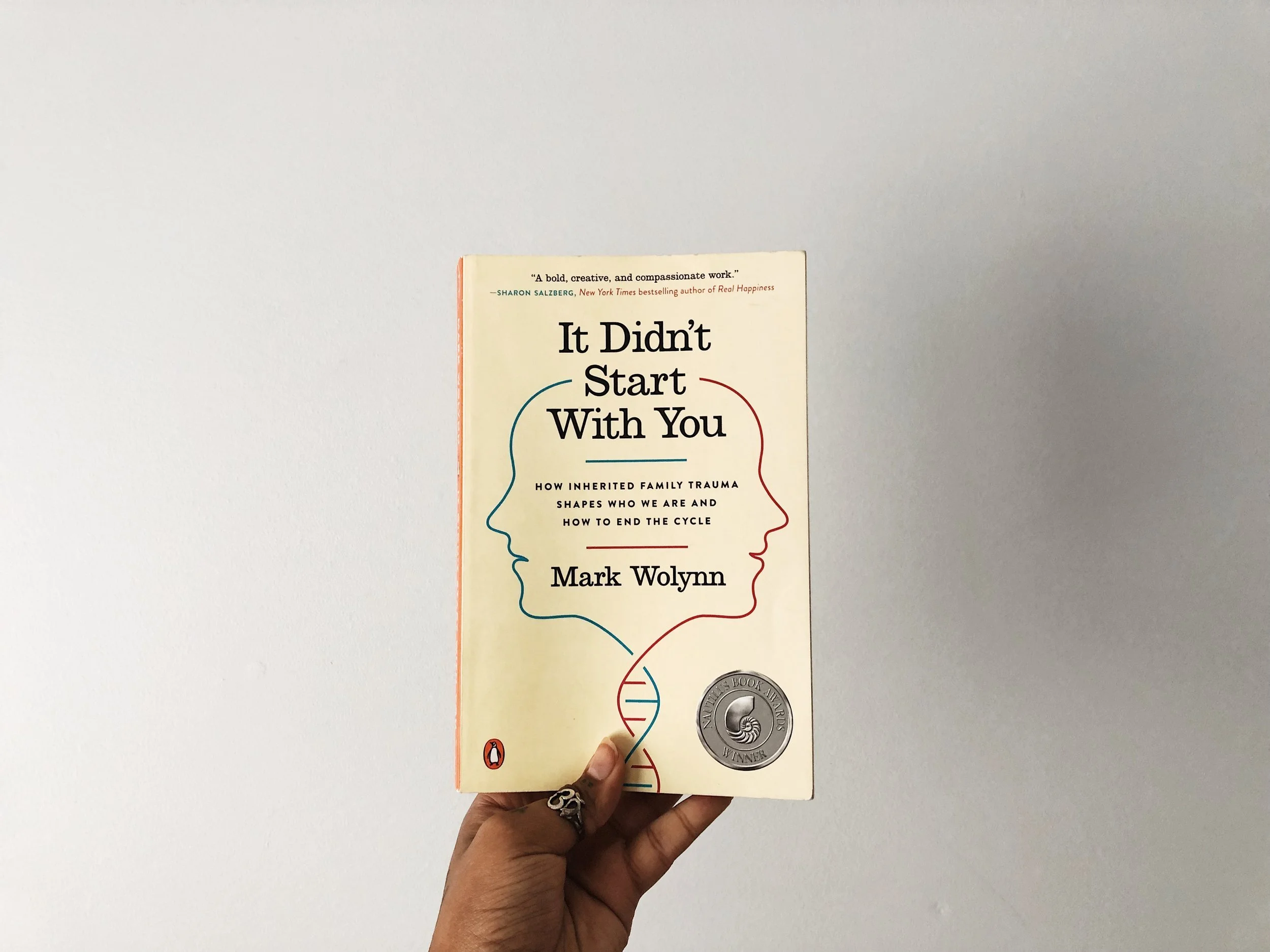Book Review | It Didn't Start with You by Mark Wolynn
Please let me say theat I apologize for the extreme delay in the review as I finished it back in March. Life has been hectic and I just never got around to it! I have a couple more reviews to write, so please be on the lookout for those!
It Didn’t Start with You was recommended to me by my dear friend Danica. If you now me, I love science and research almost as much as I love spirituality and the occult…really I just love knowledge and learning.
Anywho, reading this book opened up my eyes to the origins of trauma. It helped me to truly understand how trauma can truly be inherited and experienced through a descendant generations later. This concept was explained through epigenetics, which is “the study of changes in organisms caused by modification of gene expression rather than alteration of the genetic code itself.”
The book relayed instances of people living out the trauma and guilt of a grandparent or an uncle. Literally, the person would have the same symptoms of when the relative experienced a trauma decades before.
Wolynn allows the individual who is suffering to find the root of their dilemma by using what he calls the “Core Approach”, which essentially is listening to what words the person uses describes what they are thinking or feeling, then asks if there was a situation in the family history that aligns. For instance, a woman said that she felt like “she would be incinerated” and that tied into her relatives who died in gas chambers in the Holocaust. I knew about trauma traveling across generations, but the examples provided really gave me context for how trauma continues, if unchecked and discharged. The author also talked about ways to help discharge this energy and shift perspectives on your transgressor or the situation in general.
Talking about the Holocaust, that is the one “negative” comment that I have to make about the book. It’s not really so much as a negative comment, but a comment of frustration. Throughout the book, there are many mentions of the Holocaust, of its survivors, and studies of the family members of those who survived the Holocaust. Please let me say that the Holocaust was a very horrible and tragic time in human history. Where my frustration lies is in the absence of slavery and the trauma of Black people, all through the Diaspora.
In all honesty, I understand that the author is Jewish, so the Holocaust must be something close to him or at least in his radar of concern, so I am not mad that the repercussions of this fateful event is consistently mentioned. It is just a disappointment that slavery, Jim Crow, oppression, and systemic racism are always left out of the trauma conversation. On one hand I also understand that it is hard to measure something as vast as the trauma of Black people, especially when it still continues on…it didn’t have an end date. How can you truly measure generational trauma when so many Black people are still not okay and experiencing trauma, large and small, just about every day, which can interfere with data. One cannot have clear data input when you also have to factor in physical disease, socio-economic status (aka how much money you have), if you even have access to treatment let alone access to studies like this, and then deal with the micro-aggressions from your workplace. Yeah, I am SURE that Black people are experiencing generational trauma, we see and recognize the patterns, but we also have to juggle and balance PTSD from every angle.
Regardless of this bit of sadness that I felt from my people being essentially left out of a study that is so important and relevant to our community, this book was really insightful and inspiring. I would ABSOLUTELY recommend reading this book of you feel like you, or someone you know, have experienced generational trauma. I feel like it can truly provide great insight on where certain symptoms, thoughts, and sensations may be coming from.
